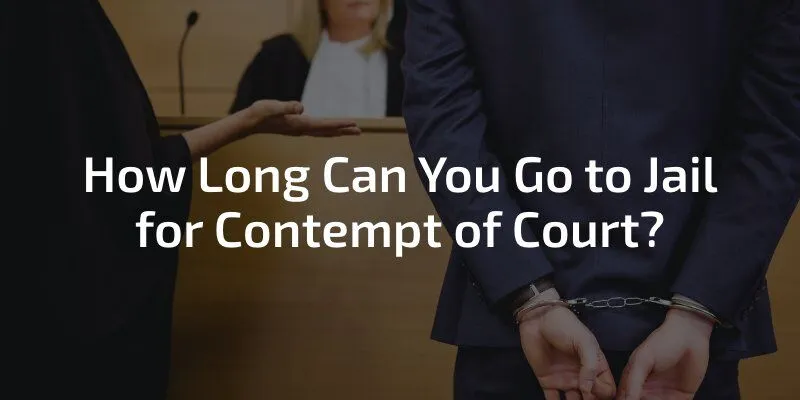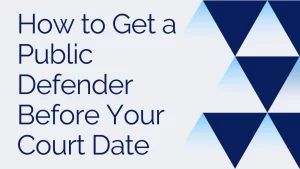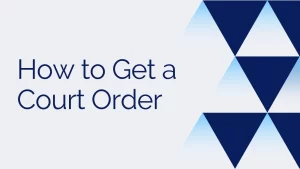How Long Can You Go to Jail for Contempt of Court
Contempt of court is not an offense to be taken lightly. Judges wield significant power to punish disruptions and maintain respect through fines, jail time, and permanent marks on criminal records. Understanding contempt charges and penalties is critical for anyone involved in court proceedings. This guide examines how contempt works, typical sentences, and strategies for avoiding violations.
What is Contempt of Court?
Contempt of court refers to acts of disobedience towards courts and interference with court operations. Judges can issue contempt citations and impose penalties to compel compliance with orders and ensure proper conduct.
Definition
Legally, contempt is defined as willful disobedience or open disrespect for judicial authority. It covers a range of behaviors that disrupt court proceedings, ignore direct orders from a judge, or deceive the court. Contempt powers enforce cooperation with the legal process.
Types of Contempt
There are two main classifications – criminal contempt and civil contempt:
- Criminal contempt punish past behavior with fines and jail time. This is imposing a penalty for disruption or violations that have already occurred.
- Civil contempt aims to gain compliance into the future. Jail time gets issued until the person adheres to court orders or agreements. Fines may also get charged per day of noncompliance.
Consequences of Contempt Convictions
The court has discretion in assigning contempt penalties. However, significant fines and extended jail stays are possible outcomes.
Fines
Fines up to $1,000 are common for contempt citations. With particularly defiant or repeated offenses, fines can reach as high as $100,000 in exceptional cases. The amount correlates to factors like the disruption severity, prior violations, financial means, and judge discretion.
Jail Time
Beyond fines, contempt often leads to jail sentences ranging from a few days up to over 5 months behind bars.
Maximum Sentences
By statute, 6 months is typically the maximum jail stay judges can impose for criminal contempt involving disobedience of a court mandate. Federal courts have authority under federal law to sentence up to life in prison in the most extreme instances.
Typical Sentences
In practice, short stays between 1 and 2 weeks are more common when contempt does lead to jail time. Length depends on the offense, history, judge mood, and other context. Settling with the court before sentencing often reduces time as well.
Until Compliance
With civil contempt, jail time aims to get compliance with court orders. There are generally no hard maximums. Jail stay continues until the person adheres to what the court demands – this could mean months or over a year in some cases.
Behaviors That Lead to Contempt
Many types of defiance and disrespect towards the court system can warrant contempt charges:
Disrupting Proceedings
Disorderly conduct like yelling, fighting, creating noise disturbances directly interferes with court operations. Refusing to follow court etiquette rules also applies here. Severe disturbances may lead straight to criminal contempt charges.
Ignoring Orders
If a person fails to show up for court dates, misses payments, or otherwise ignores direct judge orders, judges can issue contempt citations to impose penalties aiming to gain compliance. Multiple missed child support payments, for example, often causes contempt charges.
Deceiving the Court
Any attempts to intentionally mislead judges or court officers through hiding evidence, lying under oath, or fraud falls under contempt. Perjury is a prime example, as deceit undermines the legal process.
Contempt Hearing and Trial Process
Just like other crimes, contempt charges have a judicial process before final sentencing or dismissal:
Notice and Arraignment
The first step involves formally presenting the contempt charges and evidence of willful defiance. The accused gets a chance to enter a plea at an arraignment hearing. Pleas often involve either guilty admission or not guilty defenses.
Defense Preparation
In indirect contempt cases with evidence shown outside of court, the accused has a right to prepare a defense against allegations. This involves examining prosecution claims and evidence closely to counter contempt accusations and lower sentencing risk.
Prosecution Arguments
The contempt proceedings involve prosecutors arguing before a judge why the behavior in question qualifies as defiance against judicial authority rather than just general misconduct. Sentencing tends to be harsher when contempt gets proven beyond typical disruption or disturbance.
Verdict and Sentencing
Judges ultimately decide verdicts on contempt charges. If guilty, they impose fines, jail time, and other penalties according to statutes and personal discretion based on severity and other factors.
Appeals Process
After sentences get handed down, the accused can appeal contempt convictions through higher courts. This involves arguing flaws in rulings and contempt evidence. Appeals aim to overturn findings of guilt and lower or eliminate sentences.
Avoiding Contempt Charges
Once in court environs, staying conscious of conduct is the best path to avoid contempt troubles:
Following Court Orders
Simply showing up when mandated, sticking to appointments, and precisely following specific judge instructions keeps citation risks low and judges satisfied.
Hiring an Attorney
Having a lawyer well-versed in contempt standards by your side provides experienced guidance on proper conduct in court as well as defense readiness if charges do get falsely filed.
Settling Out of Court
In civil compliance cases, reaching agreements with prosecutors or plaintiffs before contempt hearings offers chance to agree on “good behavior” plans without jail time. This depends on the willingness of the other party.
Conclusion
Key Takeaways
Contempt of court citations are serious charges that grant judges power to maintain order and compliance through fines and jail sentences. Exact penalties vary, but weeks to months behind bars are possible depending on the defiance and history. Acting with respect towards legal proceedings is critical for avoiding violations.
Final Thoughts
Navigating courts poses challenges, but understanding contempt standards provides a map to stay on safe ground. When disputes inevitably arise around orders and direction, relying on legal counsel provides the best chance to settle peacefully before contempt enters consideration. With sound guidance, court processes become far less complicated flats than intimidating peaks.
FAQs
What is the maximum jail sentence?
The maximum sentence a judge can impose for contempt is generally 6 months in jail. In extreme cases under federal law, some federal courts have levied sentences upwards of life imprisonment.
How long do people usually serve?
Typical jail stays run between 1-2 weeks for criminal contempt. Longer sentences occur, but judges often show some leniency around first violations. Civil contempt jail time lasts until compliance gets met.
What should I do if charged?
Immediately consult a lawyer experienced with contempt defense. An attorney can examine the case details and evidence to build the strongest defense before proceedings. Admitting fault and agreeing to court direction also lowers risks.
Can charges be dropped?
Yes, charges can get dropped if invalid, if the accused complies belatedly before hearings, or through settlements and agreements between parties. Skilled legal counsel negotiates these resolutions favorably.
What if I can’t afford bail?
Situations exist where judges mandate bail during the proceedings, especially with jail sentencing likely. Inability to afford bail means staying incarcerated until contempt hearings. Attorneys may argue against bail requirements or arrange reduced payments if possible.








